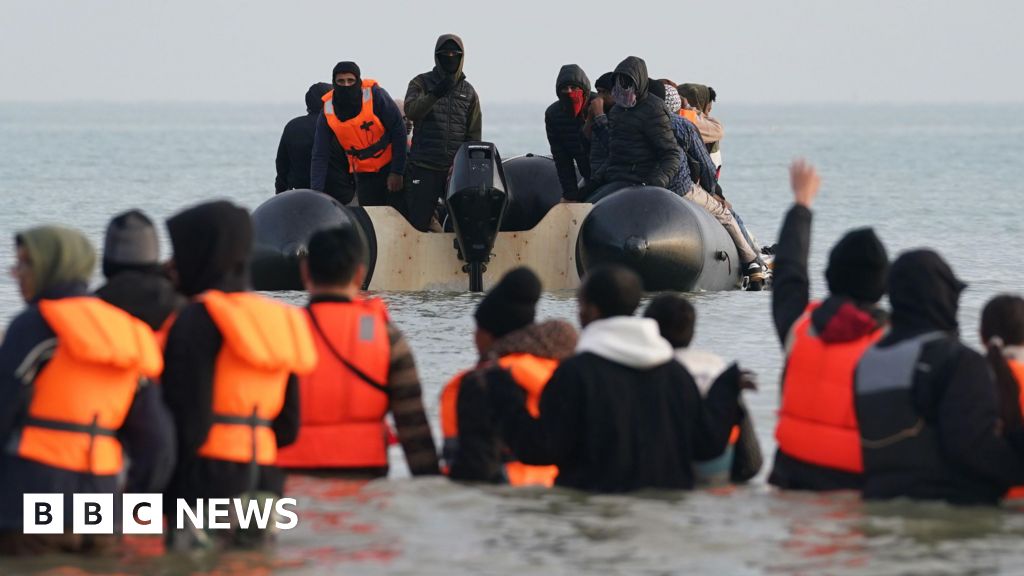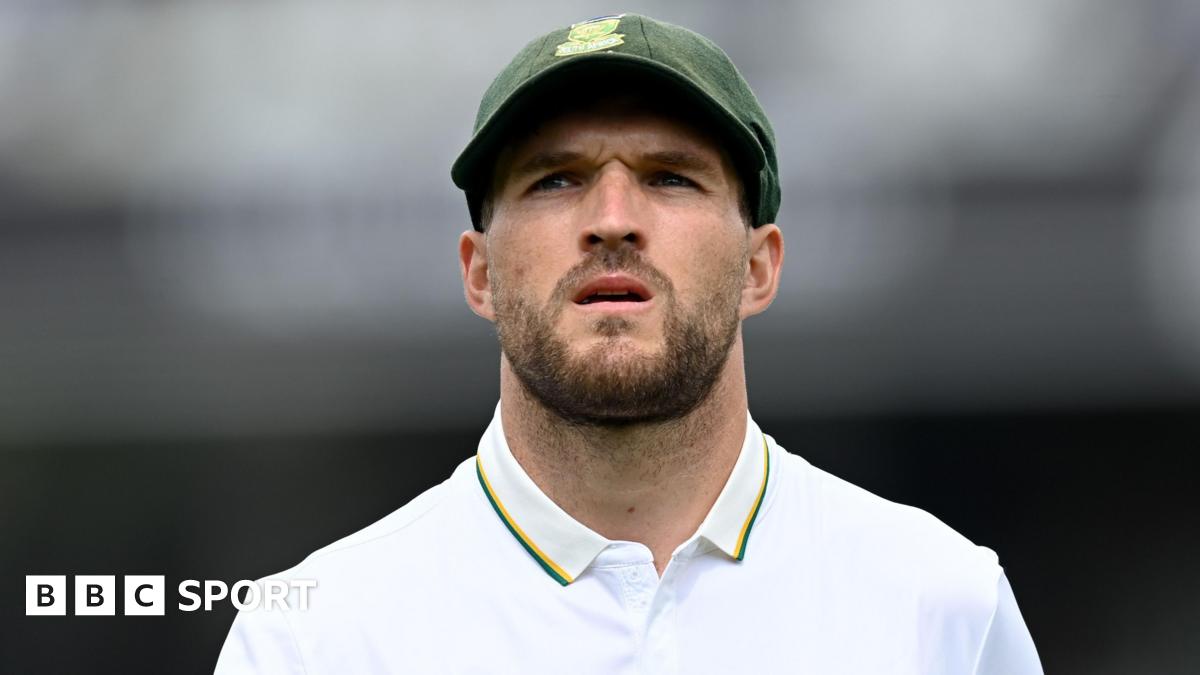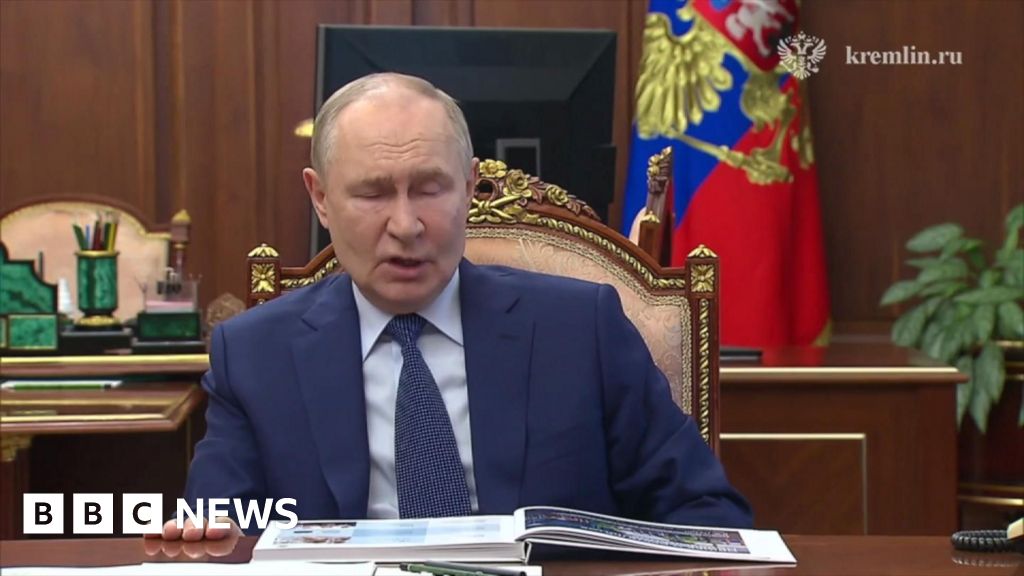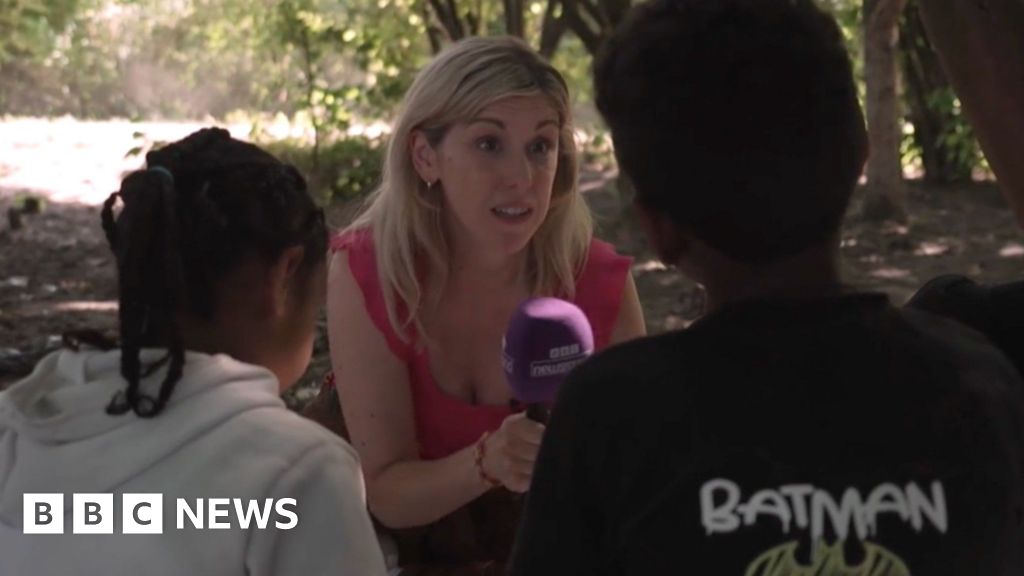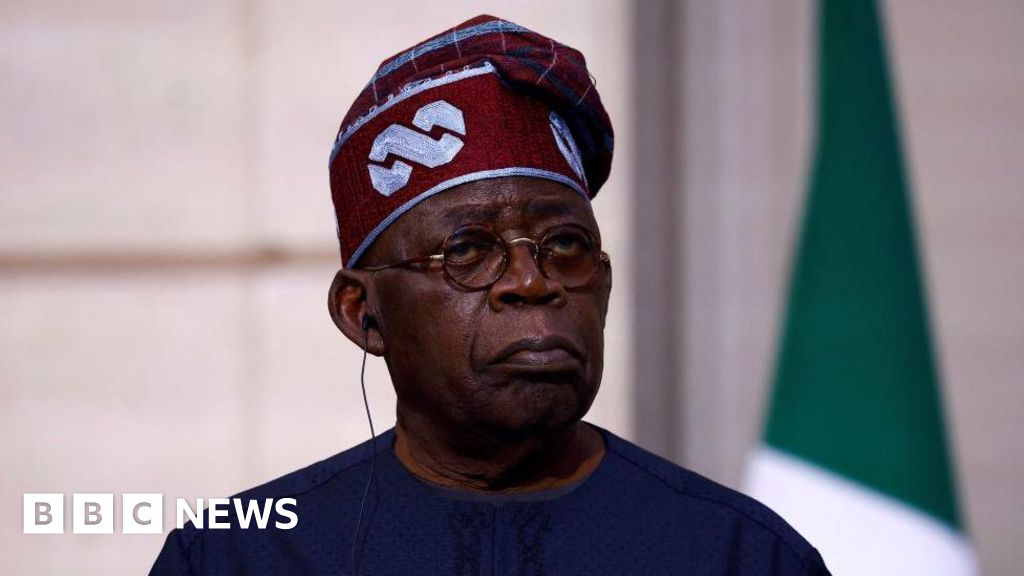[ad_1]
BBC News, Abuja
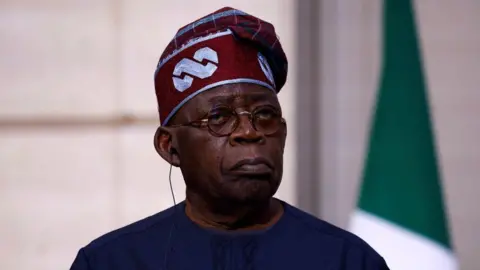 AFP via Getty Images
AFP via Getty ImagesIn Nigerian politics, there has long been an informal understanding: presidential appointments should carefully balance the country’s many ethnic and religious differences. Today, there are growing concerns that this is being ignored.
While the constitution requires regional representation in cabinet positions, the broader distribution of other prominent roles has traditionally followed a convention aimed at fostering national cohesion.
Nigeria’s fractious divisions have in the past torn the country – Africa’s most populous – apart.
Concerns about fairness in presidential appointments are not new, but a chorus of criticism is growing over President Bola Tinubu’s picks, with some accusing the head of state – who has been in power for two years – of favouring people from his own Yoruba ethnic group.
The presidency vehemently denies the accusation.
There have long been fears that members of one ethnic group would come to dominate key positions – and this means that presidential appointments are closely scrutinised whenever they are announced.
There are over 250 ethnic groups in the country with Hausa-Fulanis, Igbo and Yoruba – hailing from the north, south-east and south-west respectively – being the three largest.
Critics say that Tinubu, a southern Muslim, showed signs of ignoring precedent from the onset when he picked another Muslim (although from the north) to be his running mate for the last election.
Since the return of democracy in 1999, the major parties had always put forward a mixed Muslim-Christian ticket, as the country is roughly evenly divided between followers of the two religions.
Tinubu’s appointments since becoming president in May 2023 are facing growing cricisim.
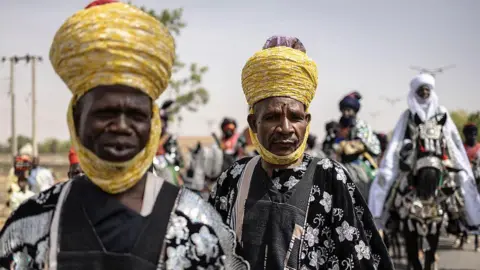 AFP via Getty Images
AFP via Getty ImagesAlthough there are dozens of roles for a head of state to fill, there are eight jobs that “are the most crucial for every administration”, according to political analyst and barrister Lawal Lawal.
These are the heads of the:
- central bank
- state-owned oil company, NNPC
- police
- army
- customs service
- intelligence agency
- anti-corruption agency and
- revenue service.
There is no constitutional ranking of positions, but collectively these roles control the key financial and security apparatus of the country.
Every president inherits his predecessor’s appointees, but has the prerogative to replace them.
As of April, all eight positions under Tinubu are now filled by Yorubas.
The recent appointment of former Shell boss Bayo Ojulari to head the state-owned oil company, the Nigerian National Petroleum Company (NNPC), in place of a northerner turbocharged the debate about the apparent monopoly of one group in top positions.
Looking at who filled the same posts under Tinubu’s two immediate predecessors, there was no such dominance of one ethnic group at the same stage of their presidencies.
Goodluck Jonathan – who served from 2010 to 2015 – had a relatively balanced team of two ethnic Fulanis, two Hausas, one Atyap, one Igbo, one Yoruba and one Calabar.
When it came to Muhammadu Buhari – in power from 2015 to 2023 – the situation was less clear.
In the top eight he had three Hausas, two Kanuris, one Igbo, one Yoruba and one Nupe.
But in the minds of many Nigerians, Hausas, Kanuris and Nupes are all seen as northerners – and therefore there was a perception that Buhari, who is from the north, showed favouritism.
Some argue that Tinubu’s appointments have merely continued the trend, but the 100%-Yoruba make-up of the eight key positions is unprecedented.
“For a democratically elected president, I cannot remember at any point in Nigerian history where you have this high concentration of a particular ethnic group holding most of the sensitive positions,” history professor Tijjani Naniya told the BBC.
This is not just about what has happened in the past but it could have an impact on the unity and even the future of the country, the professor said.
“For me, the fear is what if the next president continues on this path and picks most of the sensitive positions from his ethnic group, it diminishes the feeling of belonging among the rest and also reduces belief in democracy,” he said.
In the last two years, many northerners, mostly Hausa-Fluanis, have looked at the apparent direction of travel with alarm.
The current men (there are no women) in charge of the NNPC, the police, customs and the Economic and Financial Crimes Commission (EFCC) all replaced northerners.
The removal of Abdulrasheed Bawa, a Hausa, as boss of the EFCC in 2023 just two years after he was appointed was especially controversial.
He was arrested, accused of abuse of office and detained for over 100 days before the charges were dropped.
He was replaced by Ola Olukoyode, an ethnic Yoruba.
Some from the north felt Mr Bawa was unfairly treated and pushed aside to make way for Mr Olukoyode.
“The president needs to know that the Yoruba people are just a part of the country, and all appointments should be spread across all ethnic groups and regions,” social affairs analyst Isah Habibu told the BBC.
Without addressing specific cases, a Tinubu spokesperson has said the president is being fair and balanced, by taking the wider view of all appointments.
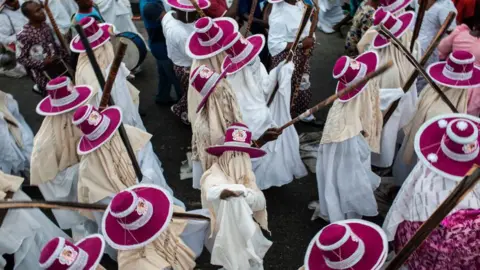 AFP via Getty Images
AFP via Getty ImagesMedia aide Sunday Dare did try to go into detail, saying overall, 71 northerners and 63 southerners had been appointed by Tinubu. But his 9 April post on X was later deleted, after people pointed out errors in his claim.
He promised an updated list, but more than six month slater, it has yet to appear.
Tinubu faces critics even from within his own party.
Senator Ali Ndume is from the north and – like Tinubu – belongs to the All Progressives Congress. In one television interview he said he had gone on air to talk about the president’s appointment “wrongdoings”.
Ndume said he was shocked, describing them as “non-inclusive and not reflecting the president’s ‘Renewed Hope’ agenda, which promised to carry every section of the country along”.
Another presidential aide, Daniel Bwala, disputed the idea that some positions were more significant than others.
“All I know is that the constitutional provisions [regarding appointments] have been taken care of by the president – there’s nowhere in the constitution [where it is] mentioned top five, top 10 and the rest,” he told the BBC.
“The way we see it is that any position or appointment that one is privileged to serve in is very critical and important.
“The national security adviser is from the north-east, the chief of defence staff is from the north-west and the secretary to the federal government is from north-central.”
The Office of the Secretary to the Government of the Federation, which coordinates policy on behalf of the presidency, released a statement on 12 April saying Tinubu was being fair.
“This administration is dedicated to ensuring that all regions and demographics of the country are adequately represented in its institutions and agencies,” it said.
Political analyst Mr Lawal said the president should appoint the best person for the job, irrespective of their ethnic origin – and agues that this is what Tinubu is doing.
“It’s high time Nigeria looks beyond ethnicity,” he said.
There could be a time when Nigerians no longer obsess over the ethnic origins of those in the upper echelons of government, but historian Prof Naniya says this is still some way off.
He believes it can only happen when the country gets at least four presidents in succession who give every section a sense of belonging in terms of projects and appointments.
“I think it can be done but needs the right leaders.”
More BBC stories from Nigeria:
 Getty Images/BBC
Getty Images/BBCSource link

